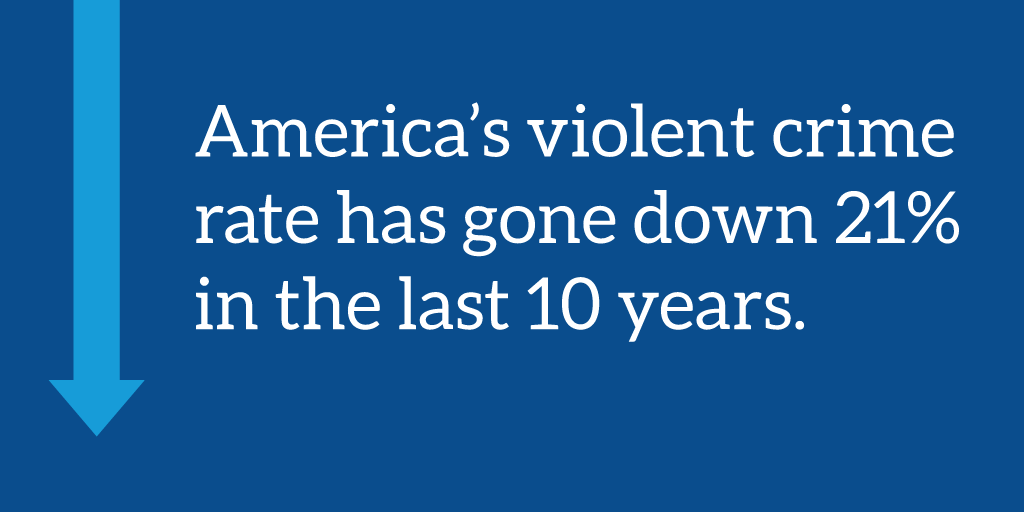In advance of Sunday’s presidential town hall in St. Louis, Missouri, where Donald Trump and Hillary Clinton are expected to speak again on crime and policing, the Brennan Center for Justice at NYU School of Law released a brief analysis of crime rates from 1965 through 2015, as well as a fact sheet on “stop-and-frisk.”
The analysis looks at FBI data and finds the overall crime, violent crime, and murder rates stand at or near lows not seen since the 1960s.
The crime rate dropped in 2015 for the 14th year in a row. Violent crime increased 3 percent, but “remains low compared to where it was 5, 10, or 25 years ago.” The murder rate increased 10 percent last year and “currently stands near 1960s levels.”
“Any rise is troubling,” author James Cullen writes. “But it would be a mistake to overstate this change — or worse, to overreact to it.”
According to FBI data, 20 percent of the uptick in murders last year was due to increases in four cities — Baltimore, Chicago, Milwaukee, and Washington, D.C. A preliminary Center analysis of 2016 shows murder rates are projected to increase 13.1 percent this year, but nearly half of that spike is due to violence in Chicago.
The host city has had its own challenges. The 2015 murder rate in St. Louis was 14 times higher than that of New York City’s but is predicted to go down in 2016. And Ferguson, a St. Louis suburb, has been a focal point of police reform ever since the 2014 shooting of Michael Brown.
An improved relationship between the police and communities — along with other evidence-based policing practices like CompStat — could help build upon progress already made and help alleviate local problems across the country, Cullen says.
One tactic that’s not been backed by evidence is New York’s “stop-and-frisk” policy, which was declared unconstitutional by a judge in 2013. The fact sheet from the Brennan Center concludes no clear statistical relationship exists after examining the number of stops related to both city crime rates and murder rates.
“In fact, the biggest fall occurred precisely when the number of stops also fell by a large amount — in 2013,” it says.
To talk to a Brennan Center expert on either resource or the candidates’ criminal justice policies, contact Rebecca Autrey at rebecca.autrey@nyu.edu or 646–292–8316.
